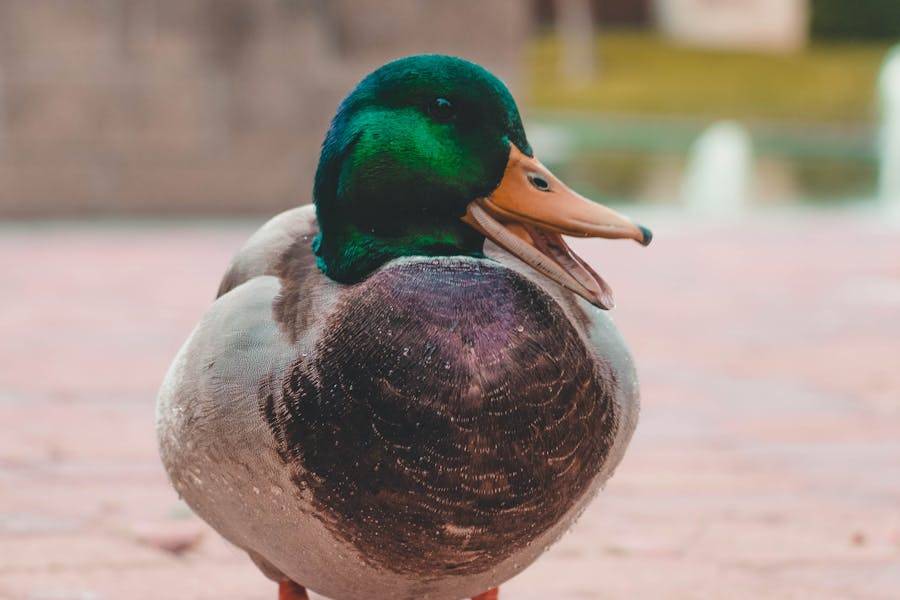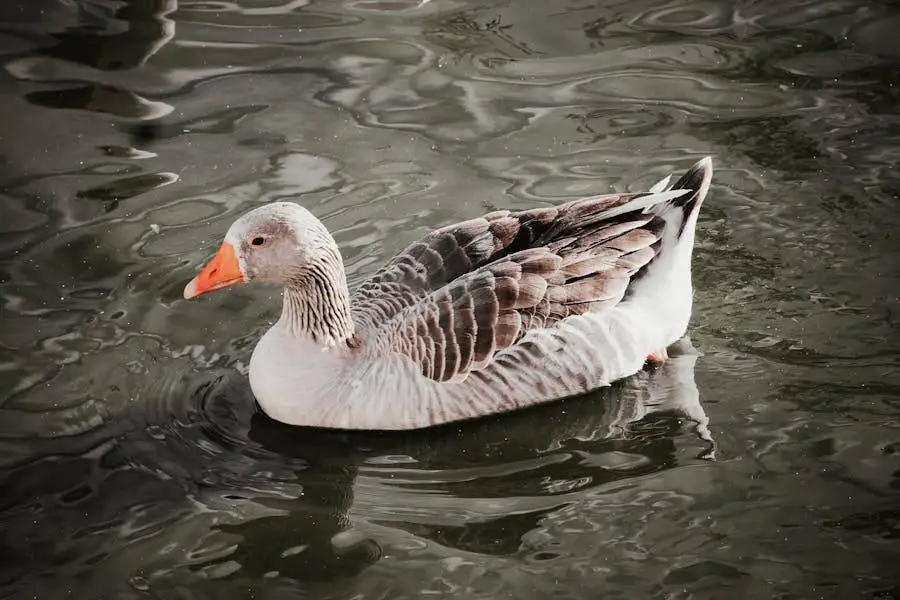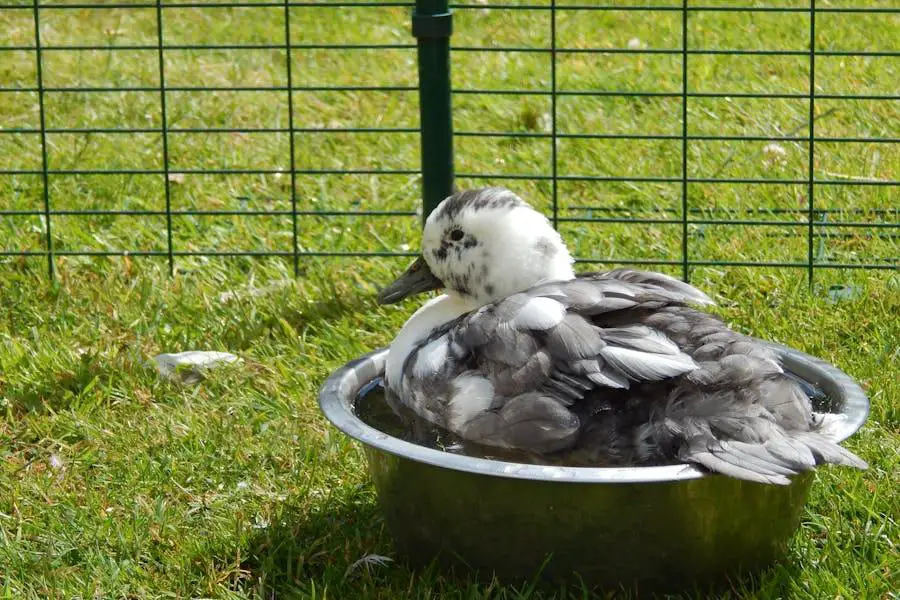Table of Contents
![]() The sudden disappearance of a duck can be an unsettling and distressing event for any owner.
The sudden disappearance of a duck can be an unsettling and distressing event for any owner.

Ducks, with their inquisitive nature and tendency to explore, can sometimes wander off and not find their way back.
This comprehensive guide is designed to navigate the steps you should take if you find yourself in this unfortunate situation.
From understanding duck behavior and taking immediate action, to implementing preventative measures for the future, we cover all the essential aspects to help you in your search and emotional coping strategies.
Understanding Duck Behavior
Understanding why your duck might have gone missing is crucial in formulating an effective search strategy.
Common Reasons Ducks Wander Off
Ducks are naturally curious and may leave their familiar surroundings for several reasons:
- Searching for Food: If their immediate environment lacks sufficient food, ducks may venture further afield.
- Mating Call: During mating seasons, ducks might wander off in search of a partner.
- Disturbance: Predators, loud noises, or environmental changes can scare them away.
- Wanderlust: Simply put, ducks like to explore, which sometimes leads them too far from home.
Seasonal Changes and Duck Behavior
Seasonal changes significantly affect duck behavior:
- Breeding Season: The urge to find a mate can drive ducks to go on extended adventures.
- Molting Season: Feeling vulnerable, they might seek hidden spots for safety and not return.
- Changes in Water Source: Seasonal drying up or the appearance of new water bodies can lure ducks away.
Immediate Steps to Take
When you first realize that your duck has gone missing, the urgency and immediacy of your actions can significantly impact the likelihood of finding your feathered friend.
Here’s a detailed approach to what you should do as soon as you notice your duck is missing.
Securing the Remaining Flock
The safety of any remaining ducks or poultry becomes paramount when one goes missing. Here’s how to ensure their security:
- Check and Reinforce Enclosures: Inspect your duck’s living area for any signs of escape or entry points for predators. Small gaps in fencing, loose gates, or holes dug under the enclosure are common escape routes. Reinforce these areas with additional wire mesh, stronger materials, or by burying fencing deeper into the ground.
- Implement a Headcount Routine: Establish a regular headcount routine for your ducks, ideally during feeding times when they are most likely to gather together. This practice helps in quickly identifying when a duck goes missing and can be crucial for early intervention in future instances.
- Review Predator Deterrents: If a predator is suspected of taking your duck, review and enhance your predator deterrent strategies. This could include installing motion-activated lights, using predator guards around the perimeter, or even employing guard animals like dogs or geese, known for their protective nature towards flocks.

Searching the Immediate Area
Time is of the essence, and a thorough search of the immediate vicinity where your duck was last seen can sometimes lead to quick reunions:
- Organize a Search Party: Gather family members, friends, or willing neighbors to help in the search. Split up into groups to cover more ground efficiently. Equip each group with photos of the missing duck and possibly treats to lure the duck back.
- Check Concealed and Tricky Spots: Ducks can hide in surprisingly small and concealed areas, especially if scared or injured. Check under bushes, in tall grass, between buildings, in drain pipes, or anywhere a duck might seek refuge. Remember to look up too; ducks can sometimes end up in trees or rooftops.
- Extend the Search Beyond Your Property: Once you’ve thoroughly searched your property, extend the search to neighboring areas. With permission, check neighbors’ yards, local ponds, parks, and any bodies of water. Ducks are attracted to water and may have followed a stream or drainage ditch further than expected.
- Use Familiar Sounds: As you search, use sounds familiar to your duck to attract its attention. Calling its name, using a specific call you’ve used for feeding, or playing recordings of duck sounds can help draw a lost duck out of hiding.
- Leave a Trail: Consider leaving a trail of food from the areas you search back to your duck’s home. Hungry ducks might follow this trail back. Ensure the food is safe for ducks and in small enough quantities to entice them without overfeeding.
- Notify Immediate Neighbors: Inform your immediate neighbors about your missing duck. Provide them with a description and ask them to check their properties. Sometimes, ducks wander into garages, sheds, or are found by neighbors who may not immediately know whom the duck belongs to.
- Prepare for Nightfall: If your search extends into the evening, prepare for the possibility that your duck might not be found by nightfall. Leave out water and food in a few safe locations near your property, along with an open shelter if possible. Ducks are more likely to hide at night, but hunger or thirst might draw them out to these provisions.
Taking immediate and thorough steps upon discovering your duck is missing can make a significant difference in whether or not you find your pet.
While it’s a challenging and emotional time, staying organized and proactive in your search efforts offers the best chance for a positive outcome.
Preventative Measures for the Future
Taking steps to prevent future losses is just as important as finding your missing duck.
Improving Enclosure Security
Enhance the security of your duck’s home:
- Increase fence height and bury the bottom to prevent digging.
- Install predator deterrents like motion-activated lights or guard animals.

Training and Routine Checks
Establish routines to keep your ducks safe:
- Train your ducks to respond to calls for feeding times, making it easier to gather them.
- Perform daily headcounts and regularly inspect the enclosure for potential escape points.
When to Involve Professionals
Sometimes, you may need to seek help from those with more resources or expertise.
Local animal shelters and rescue organizations can offer support:
- They can alert you if a duck matching yours is brought in.
- Some organizations may also assist in the search or provide useful advice.
Moreover, local authorities can provide assistance in specific situations:
- Report your missing duck in case there are relevant sightings or reports.
- Understand the legal implications, especially if your duck could potentially cause issues in public areas.
Legal Considerations and Reporting
Being aware of your responsibilities and rights can aid in the search.
Familiarize yourself with laws regarding domestic and wild ducks. Know what you’re legally allowed to do in your search, especially concerning entering private properties or protected areas.
The Importance of Reporting Missing Livestock
Reporting your missing duck can have several benefits. It formally documents the incident, which could be important if there are legal concerns.
Also, authorities may offer additional resources or advice to help in the search.
Emotional Support and Community Resources
Losing a pet can be emotionally challenging. Finding support is crucial.
Finding Support in Community Forums
Online forums and local clubs can offer empathy and practical advice. Sharing your experience can help in coping with the loss. Members may have additional tips or even volunteer to help in the search.
Professional Counseling for Pet Loss
Seek professional help if the loss of your duck impacts your mental health. Therapists specializing in pet loss can provide coping strategies.
Moreover, support groups offer a space to share your feelings with those who understand.
Conclusion
The disappearance of a duck can be a challenging ordeal filled with uncertainty.
However, by taking structured steps to search, understanding why your duck might have wandered off, and implementing future preventive measures, you can increase your chances of a happy reunion.
Remember, the support of your community, both online and offline, can be an invaluable asset.
Regardless of the outcome, learning from the experience and preparing for potential future incidents will ensure the well-being of your remaining or future flock.




![Screws or Nails for Framing - Which Should I Use? [Guide] Screws or Nails for Framing - Which Should I Use? [Guide]](https://homesteadandprepper.com/wp-content/uploads/2021/10/Nails-or-screws-for-framing-150x150.jpg)



